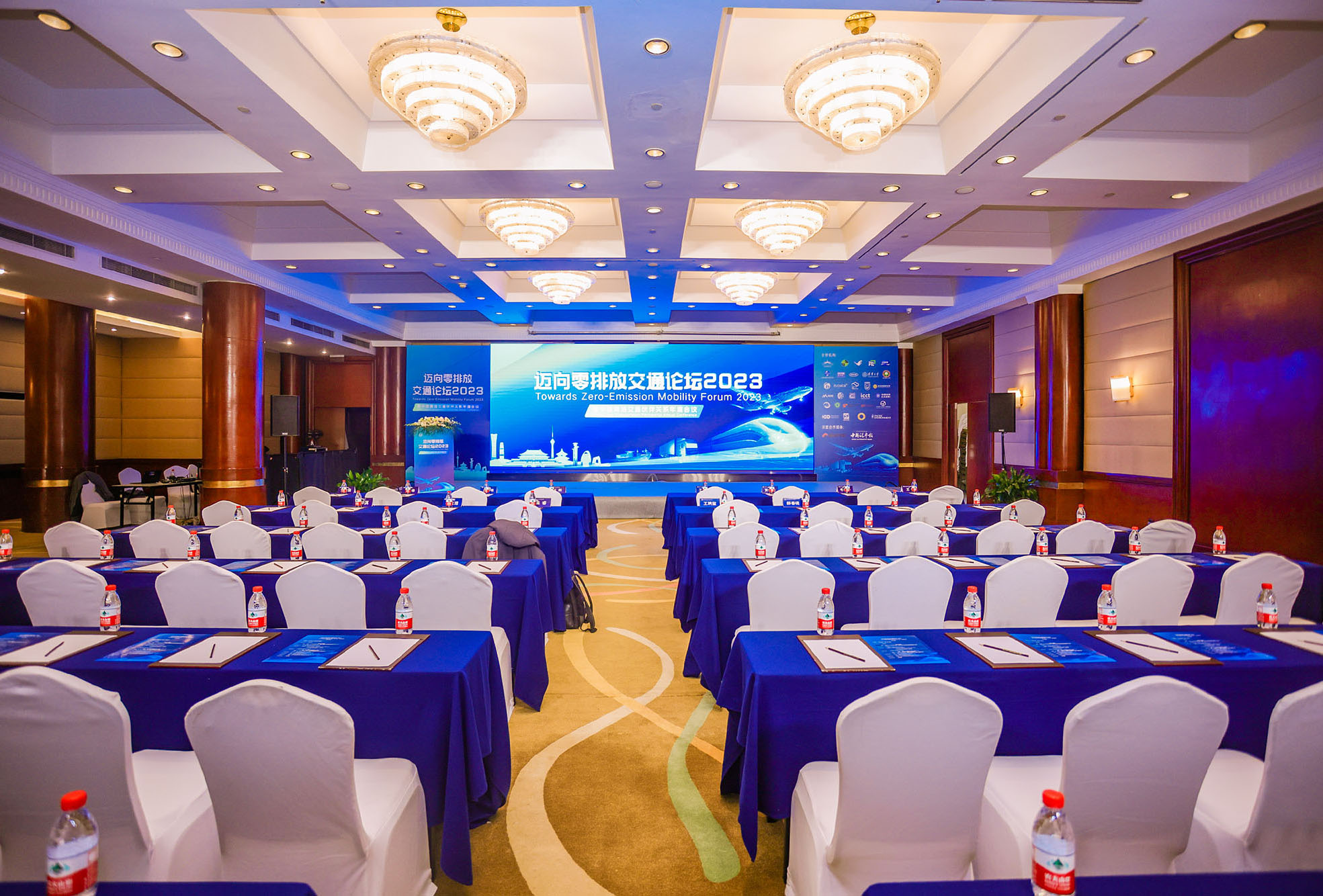
Transportation is one of the major industries in energy consumption and greenhouse gas emissions, and also a critical industry for the country's economic development. In the future, the transportation industry will continue to experience rapid development, and carbon emissions are expected to rise constantly. Reducing carbon emissions in the transportation industry is essential for China to achieve its "double carbon" objectives, reduce reliance on energy imports, and improve air quality.
In this context, the 2023 "Towards Zero-Emission Mobility Forum 2023-China Clean Transportation Partnership Annual Conference" was successfully held in Beijing on November 28, 2023. 14 experts from the fields of transportation, energy, and the environment, included but were not limited to Yi Wang, deputy director of the National Expert Committee on Climate Change, Huiming Gong, member of the CCTP Steering Committee and senior program director of transportation program of Energy Foundation China and An Feng, the executive director of CCTP, founder and executive director of Innovation Center for Energy and Transportation attending this conference. Wang Hewu, the CCTP director of Executive Committee and director of the Zero-Carbon Transportation Research Center at Tsinghua University's Institute of Carbon Neutrality, served as the host of the forum. About 80 people from universities, research institutions, international think tanks, enterprises, and media participated in the offline event, and the total number of online views reached 7.89 million.
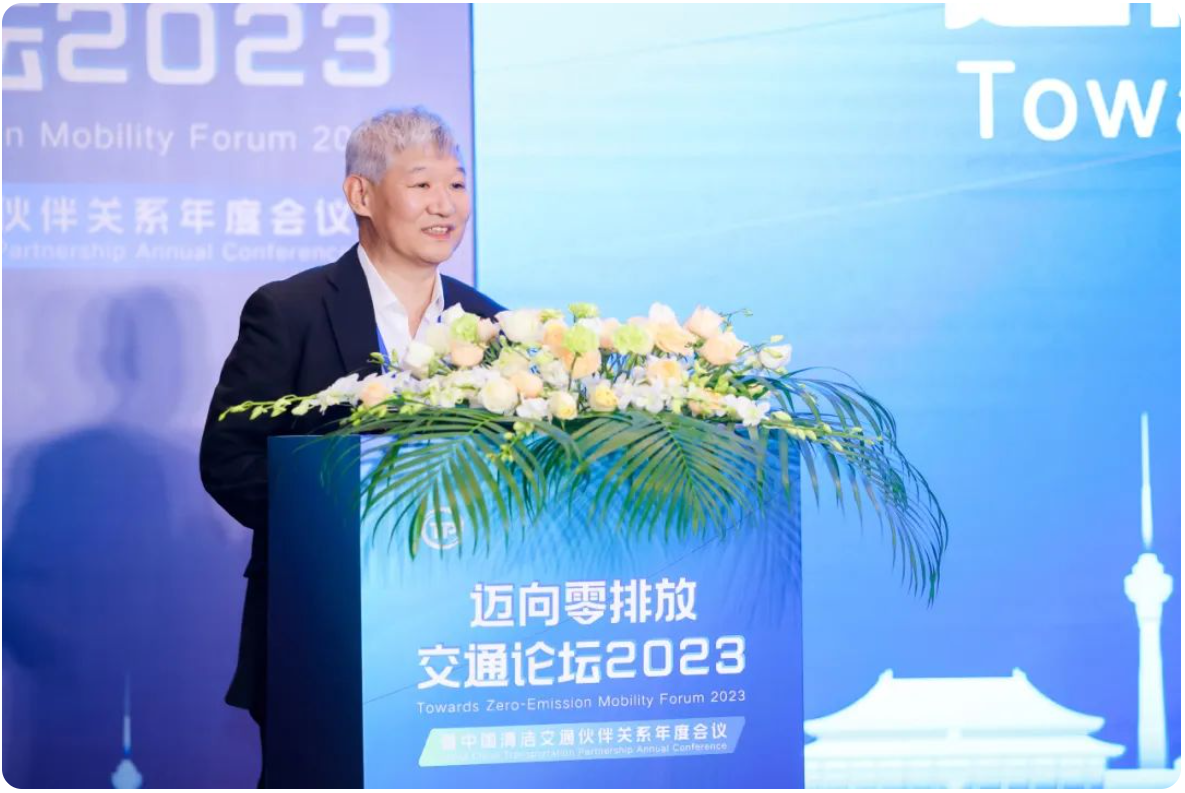
Wang Hewu, CCTP Director of Executive Committee, Director of the Zero-Carbon Transportation Research Center at Tsinghua University's Institute of Carbon Neutrality
Opening Remark
At the beginning of the meeting, Mr. Wang Yi delivered the opening speech. He mentioned that after three years of the "double carbon" goal, under the comprehensive consideration of domestic and international situations, the country has developed a "1+N" policy system and made significant efforts to promote pollution reduction and carbon emissions reduction, but there were still factors and challenges blocking the way towards zero emission traffic needs to prepare for the future and take early action. He emphasized the need to effectively share China's experiences and actively participate in joint actions to create a shared, nearly zero emission, and sustainable future.
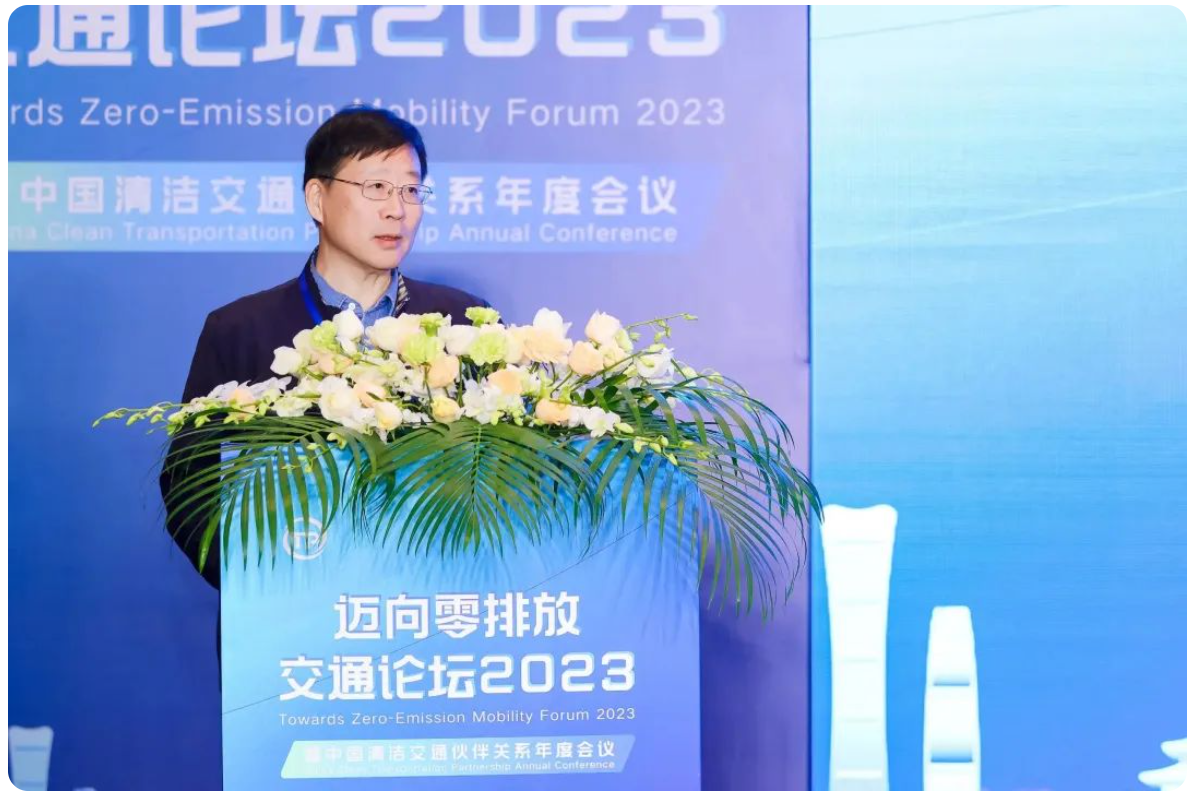
Mr. Wang Yi, Deputy Director of the National Expert Committee on Climate Change
Keynote Speech
Mr. Gong Huiming gave a main speech on "New thinking on the development of new energy vehicles under the new situation ". He mentioned that the temperature control target set by the Paris Agreement has not yet been achieved, and there were still significant gaps between China's air quality and the goal of achieving a beautiful China, which were important backgrounds and situations for the development of the new energy vehicle industry. In view of the external environment and the development of new energy vehicles, he proposed several aspects that were worth considering: (1) Setting different goals and strategies for passenger cars and commercial vehicles; (2) Considering how to integrate multiple functional management departments and infrastructure planning in the full electrification; (3) The new energy credit policy for commercial vehicles played a crucial role in promoting the technological progress of commercial vehicles and the development and application of prototype vehicles.
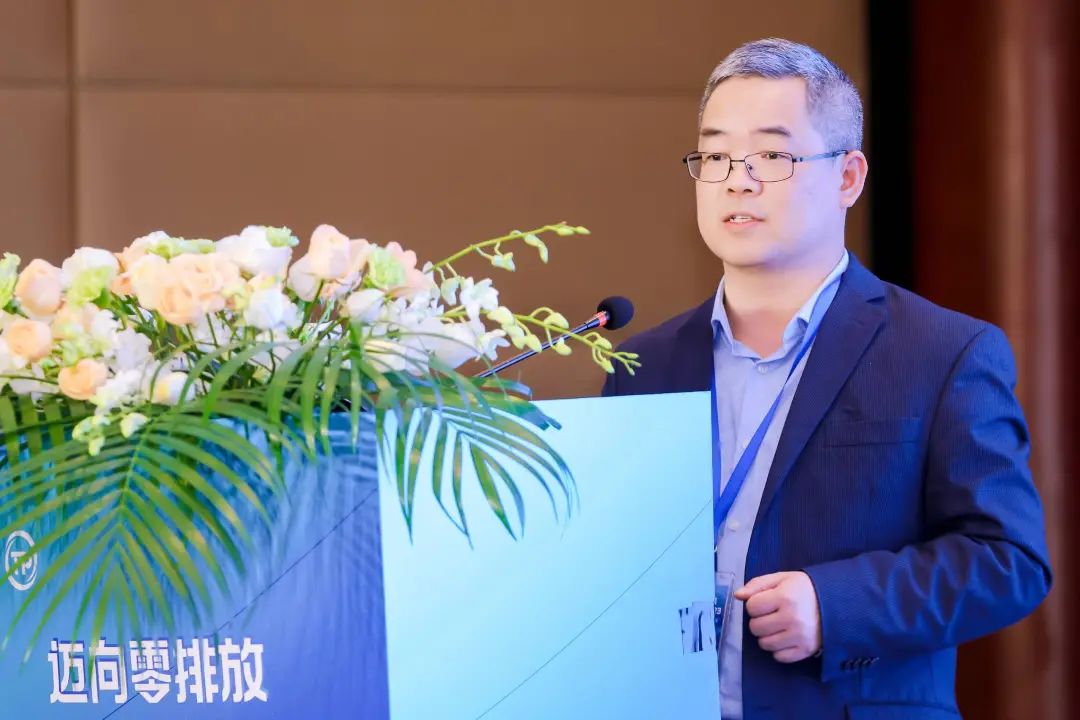
Mr. Gong Huiming, Member of the CCTP Steering Committee, Senior Program Director of Transportation Program of Energy Foundation China
During this forum, the Transition to Zero-Emission Commercial Vehicles in China was officially launched by Dr. An Feng. This report analyzes the problems and future development trends faced by the commercial vehicle zero Emission transformation from various dimensions such as policy standards evolution, technology paths, economic cost calculation, infrastructure development and others. The report also proposes targeted policy recommendations for the development of commercial vehicle zero emissions, aiming to promote the process of carbon emissions reduction in the commercial vehicle field.
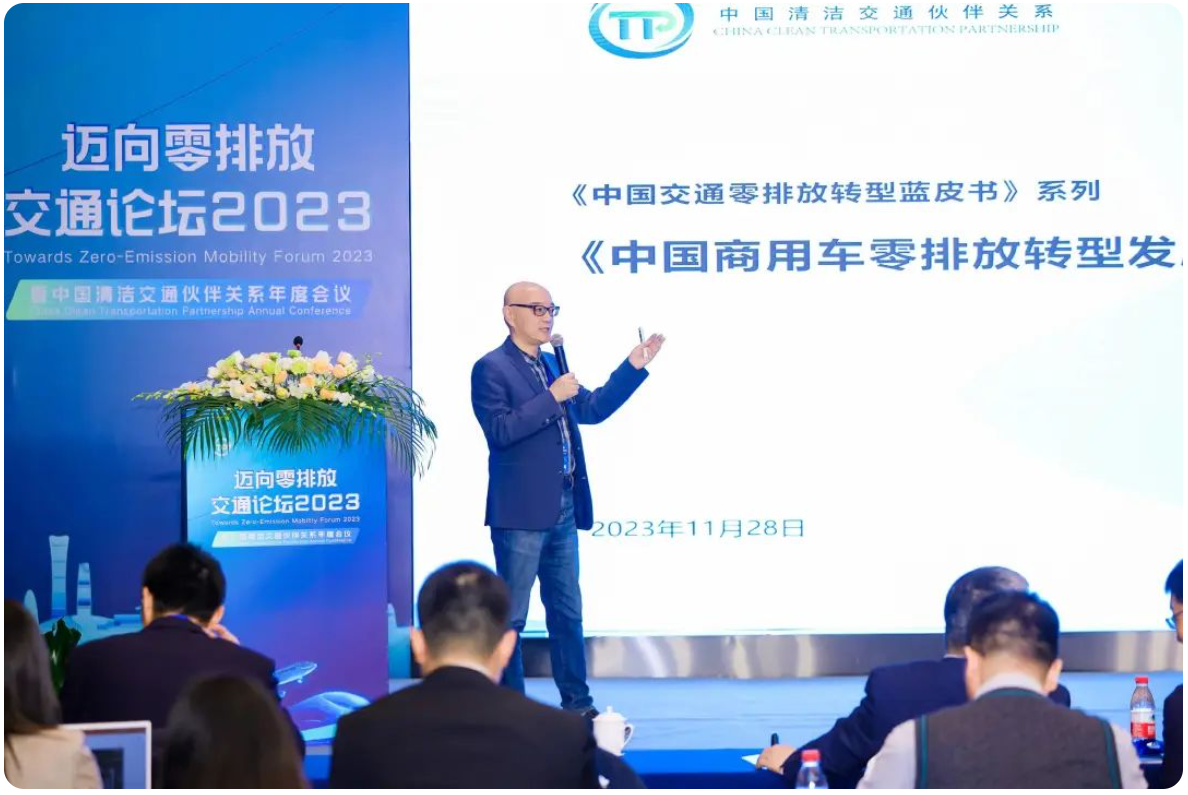
Topic 1: Discussion on the process and difficulties of decarbonization of medium and heavy trucks
Medium and heavy-duty trucks in road transportation are key stakeholders in the future energy-saving and carbon emission reduction of the entire transportation industry in our country. The first topic of the forum focuses on the process and difficulties of decarbonization of medium and heavy trucks, covering sub-topics such as the top-level design and path of commercial vehicle zero emission transformation, the evaluation of electric vehicle deployment scenarios, and the practice of decarbonization and hydrogen transformation of the logistics system. Wu Rui, the director of Environmental Resources Office, Transport Planning and Research Institute, MOT, Qin Lanzhi, the senior researcher of Clean Transportation of Innovation Center for Energy and Transportation, and Wang Pinxi Wang, the deputy director of the Energy Saving and Emission Reduction Center, Beijing Transport Institute, respectively delivered speeches. The session was presided by Dr. An Feng.

Wu Rui, Qin Lanzhi, and Wang Pinxi (from left to right) delivered speeches respectively
Topic 2: Technological path and practical innovation for non-road zero emission transition
In addition to road transportation, the importance and urgency of pollution prevention and carbon emissions reduction in non-road areas are becoming increasingly prominent. The second topic of the forum was "Technological path and practical innovation for non-road zero emission transition" focusing on emitters in non-road mobile machinery, ports and ships, aviation and high-speed trains. The session was presided over by Director Wang Hewu, and the speech was delivered by Ms. Hao Chunxiao, the deputy director of the Policy Research Department of Vehicle Emission Control Center, CRAES, Mr. Zheng Wang, the deputy director of Environmental Protection and Energy Saving Technology Research Center of Water Transport Research Institute, MOT and professor Mao Baohua, the Executive Director of China Comprehensive Transportation Research Center, Beijing Jiaotong University.

Hao Chunxiao, Wang Zheng, and Mao Baohua (from left to right) delivered speeches respectively
Roundtable: How can infrastructure further facilitate the transition to zero-emission transport
The roundtable discussion section was hosted by Jia Junguo, the deputy director and secretary-general of the Smart Transportation and Green Energy Committee of China Energy Research Society. The participants included Li Lili, the deputy director of New Energy Vehicle Energy Storage Research Institute, Sichuan Energy Internet Research Institute, Tsinghua University, Liu Jianguo, the deputy director of International Cooperation Center Energy Research Institute, Chinese Academy of Macroeconomics, and Xu Ziqi, the member of Technical Expert Committee of China Automotive Technology & Research Center Co. Ltd . They carried out in-depth discussions on various topics, ranging from different technical pathways of new energy vehicles to the planning of infrastructure and the strategy of zero-emission transformation.
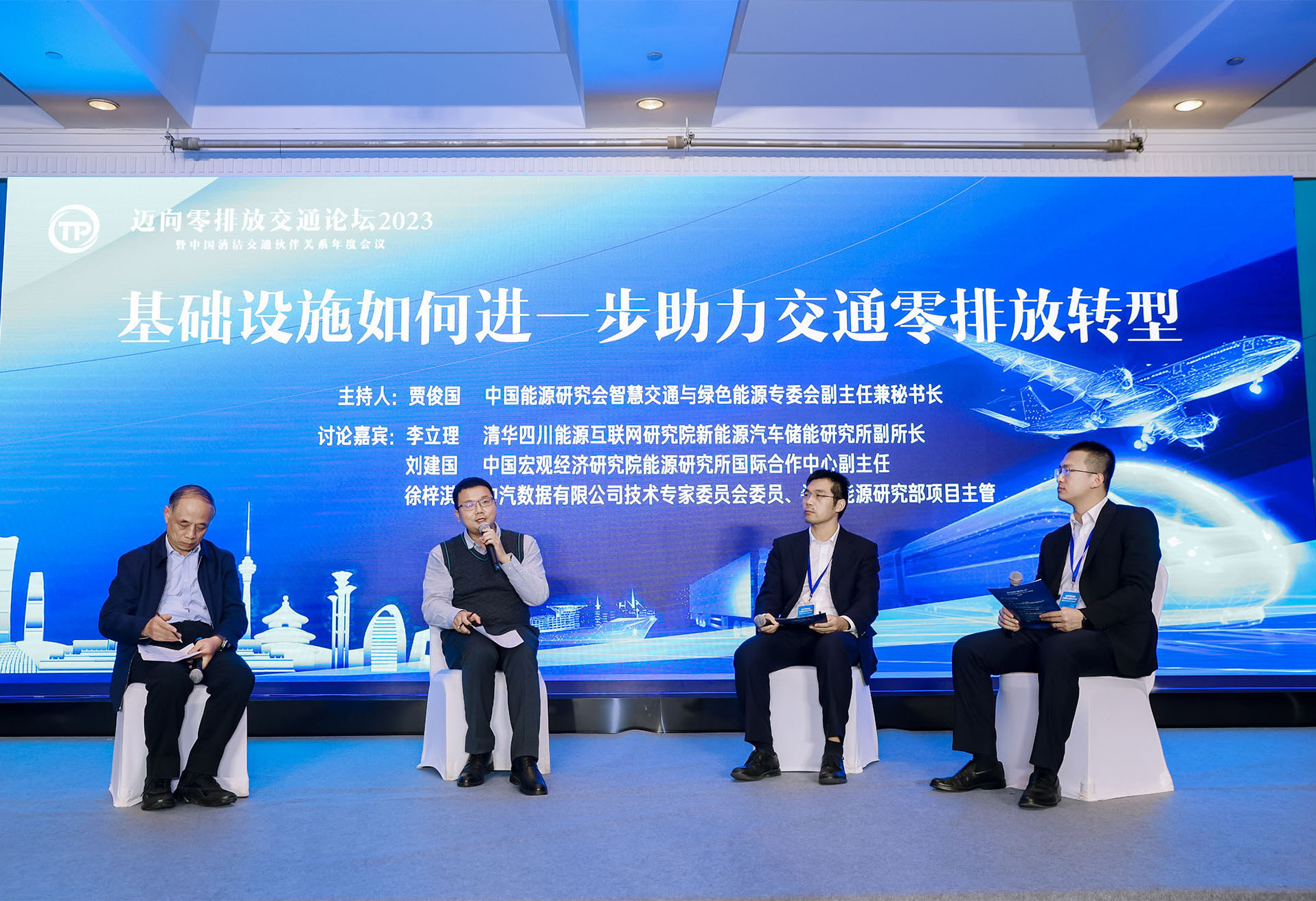
Jia Junguo, Li Lili, Liu Jianguo, and Xu Ziq (from left to right) participated in the discussion
After the meeting, Mr. Wang Hewu summarized the comments from the attendees and thanked them for their excellent sharing and efficient delivery. He mentioned that in the process of constantly moving towards zero emissions in transportation, every sub-field of roads and non-roads, as well as infrastructure, would face certain challenges and issues. However, he believed that with the gradually release of various policies and practical innovations, these difficulties and challenges will be gradually resolved. He hoped that CCTP could continue to play a leading role in promoting industry communication and cooperation, and accelerate the move towards zero emissions in transportation.
CCTP is a non-governmental, non-profit, and voluntary platform, focusing on policy and technological innovations, summarizing and disseminating national and global practices for a net-zero transportation sector.